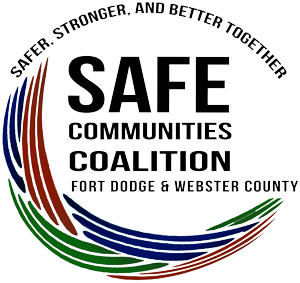Immediate Dangers of Social Media for Teens
 Here are some of the potential dangers your teenager may be exposed to while using various social media channels:
Here are some of the potential dangers your teenager may be exposed to while using various social media channels:
Exposure to inappropriate, upsetting, or adult-themed content
Of course, you don’t want your teenager exposed to adult-themed or pornographic material. The danger with social media is that your child can be sent this material by strangers or by trusted sources. They may still be at risk even when your child’s social networking sites are restricted to only known friends, or when their profiles are set private.
At least one in four teens are receiving sexually explicit texts and emails, and at least one in seven are sending sexts. More than one in 10 teens are forwarding these sexts without consent, the study found. And roughly one in 12 teens have had sexts they sent shared without their permission. (Reuters Health, Feb. 2018)
Teens practicing questionable judgment
The prefrontal cortex (the part of the brain responsible for good judgment) is still not fully developed in teenagers. Poor judgment combined with easy access to a global audience can result in some scary situations:
Oversharing in inappropriate & risky ways.
Even being emotionally vulnerable with the wrong person can have devastating outcomes to someone who struggles with low self-worth or depression. We lose control over the information we share online.
lmpulsivity & Personal health risks.
1 in 5 teens report says they check notifications while driving at least sometimes. Then the latest “social media challenges” may have your teen eating a tide pod, covering themselves in flammable liquid and setting themselves on fire in front of a video camera, or engaging in other risky activities.
Cyberbullying
59% of U.S. teens have been bullied or harassed online with more youth experiencing bullying on lnstagram than any other platform. And 1 in 5 young people having skipped school because they were victims of cyberbullying. Cyberbullying has been linked to teen depression, and can even result in increased vulnerability and depression into adulthood. It’s important to emphasize that your teen can talk to you if they feel they’re being bullied. On the other side of the coin, they should ask themselves, “could this hurt someone’s feelings?” before posting something. If it’s questionable, they shouldn’t post.
 Strangers and Predators
Strangers and Predators
In this day and age, we hope that everyone knows that not everyone is who they say they are online. There are sexual predators, scammers, identity thieves, and hackers who exploit social media to trick unsuspecting users. Your 13-year-old daughter may be speaking with someone who claims to be a 13-year-old girl, but who is, in reality, an adult male. This is a lot easier to fake online than it is face-to-face, so your daughter may develop trust for a person online who they would be wary of in person. It’s important that teens don’t mention things online that will allow online predators to find them. Things like the name of the city where they live or the school they attend.
Becoming Oversexualized
Young teenagers, especially girls, quickly discover that their sexuality can be used for attention, and social media gives them a wider audience for that attention. Unfortunately, they often do not have the maturity to self- regulate. This often leads teens to base their self-worth on how they look. This objectification can cause eating disorders and other serious mental health issues.
Distorted Perception of “What is Healthy” in Relationships
People tend to share their relationship’s “highlight reel” on social media and rarely let people see the sad, hard, or heartbreaking moments. This constant exposure to only one side of relationships can distort your teen’s perception of what is healthy. Here are some patterns to watch for:
Erosion of personal privacy
“Privacy equals control, and when a child posts a picture or a comment, they need to remember that they’re transferring control of that thought, feeling, special moment or image to all of the people that they are sharing it with, and there’s nothing to stop followers and friends from sharing it with others or even turning it into an embarrassing meme.” – Lori Getz, “The Tech Savvy User’s Guide to the Digital World.”
Constantly Comparing
By constantly comparing their relationships to all the “ideal” relationships your teen sees online, it can be easy to have a distorted understanding of what relationships are supposed to be like.
Validation & Enmeshment
Social media trains teenagers to put their worth in a continuous stream of external validation. Without having a strong system of internal validation, your teen may expect relationships to fill that void and can easily become dependent and enmeshed. Teens often don’t have the skills to become independent or interdependent in relationships.
 Instant gratification
Instant gratification
Relationships are hard work. Unfortunately, today’s online social interactions set up expectations of instant gratification. Why work through a hard patch in a relationship with your next relationship is just a right swipe away?
Lack of Sleep
1 in 10 teenagers report always using social media overnight between midnight and 6 AM. Sleep deprivation and sleep disturbances are directly linked to loneliness and depression during adolescence.
Wasting Time
When used in moderation, social media can be beneficial. Unfortunately, 44% of teenagers spend more than 3 hours a day on social media. If your teen cut their social media use in half, what could they accomplish? Do they have any dreams that they aren’t working towards? Could they be developing a hobby, interest, or passion that would contribute to their overall life satisfaction?
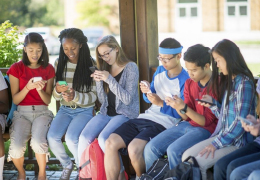 Toxic Culture
Toxic Culture
The concepts of radical candor, speaking my truth, challenging preconceived notions, taken too far turn into just being mean. It is quite common to encounter people with a mob mentality on Reddit, 4Chan, and pro-ana sites. Without proper guidance on how to navigate these cultures, your child may become desensitized to bullying, sexism, and hate speech. Teens who spend 5 hours a day or more on their phones are 2x more likely to show depressive symptoms.
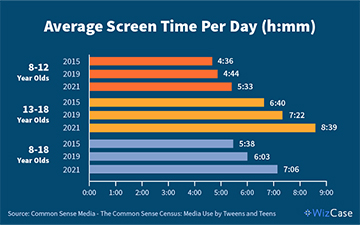
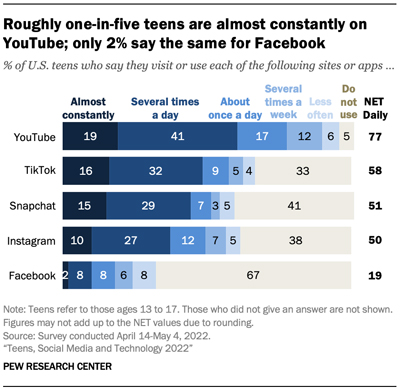
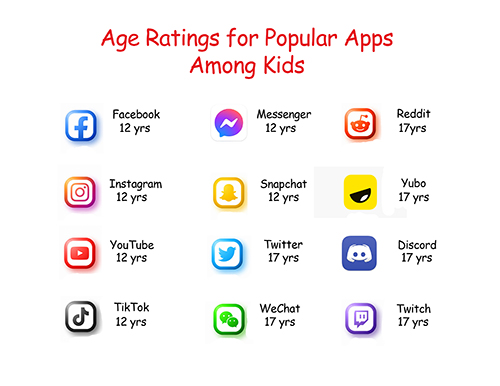
Some More Helpful and Informational PDFs and Websites
Immediate Dangers of Social Media for Teens PDF
Common Sense Family Media Agreement PDF
The 7 Best Parental Control Apps of 2022 PDF
https://protectyoungeyes.com/
https://www.commonsensemedia.org/
